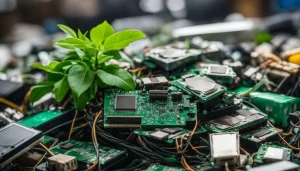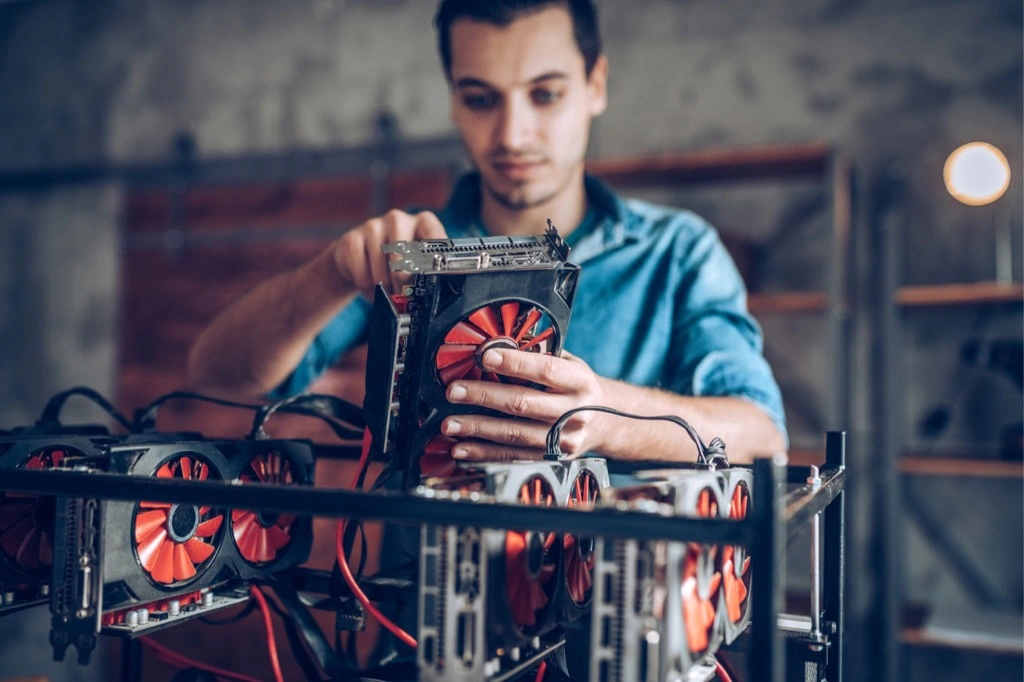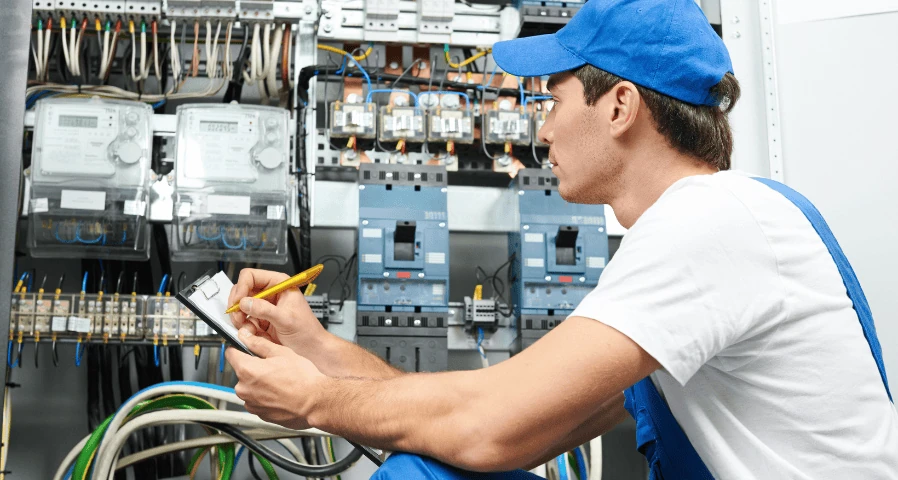Recycling PE components reduces e-waste, recovers materials, and cuts resource extraction. Reuse metals, plastics, and glass to conserve resources and reduce energy use. Challenges like lack of standard processes lead to harmful disposal. Donate usable parts, recycle at certified facilities, and use manufacturer take-back programs. These practices cut carbon footprint, preserve resources, and save energy. Exploring the Environmental Impact of PC Component Recycling reveals additional benefits for eco-friendly fitness, especially with the PE component recycling aspect.
Key Takeaways
- PC component recycling reduces strain on natural resources and minimizes negative impacts of e-waste disposal.
- It conserves valuable materials like metals, plastics, and glass, decreasing energy consumption for producing new components.
- Proper recycling prevents hazardous substances from polluting the environment.
- Sustainable practices in recycling contribute to a reduction in carbon footprint and energy conservation.
- Eco-friendly disposal methods help in minimizing landfill waste and preserving natural resources.
The Importance of PC Component Recycling
The importance of PC component recycling lies in its significant potential to reduce electronic waste and minimize the environmental impact associated with the disposal of outdated computer hardware. By recycling these components, valuable materials can be recovered and reused, reducing the need for raw material extraction. This process not only conserves resources but furthermore helps in mitigating the negative effects of e-waste on the environment.
Environmental Benefits of Recycling Electronics
Recycling electronics, particularly Personal Computer components, offers a range of environmental benefits by reducing the strain on natural resources and minimizing the negative impacts of electronic waste disposal. This process helps in conserving valuable materials like metals, plastics, and glass, decreasing energy consumption required for producing new components, and preventing hazardous substances from polluting the environment when improperly disposed of.
Challenges in PC Component Recycling
Exploring the intricacies of PC omponent r recycling poses significant hallenges in the domain of sustainable lectronic waste management.
- Lack of standardized r recycling pro esses.
- Difficulty in separating valuable materials.
- Limited awareness and incentive for r recycling.
- Environmental hazards from improper disposal methods.
Tips for Eco-Friendly PC Component Disposal
When considering sustainable electronic waste management, one must prioritize implementing efficient practices for the eco-friendly disposal of Personal Computer components. Tips for eco-friendly PC component disposal include donating working components to organizations in need, recycling non-functional parts at certified e-waste facilities, and participating in manufacturer take-back programs. These practices help reduce the environmental impact of electronic waste and promote a more sustainable approach to PC component disposal.
Impact of Sustainable Practices on the Environment
The implementation of sustainable practices in electronic waste management has demonstrated significant positive effects on the environment, showcasing tangible benefits in reducing pollution and conserving resources.
- 1. Reduction in Carbon Footprint: Sustainable practices lead to lower greenhouse gas emissions.
- 2. Preservation of Natural Resources: Recycling conserves valuable materials like metals and plastics.
- 3. Minimization of Landfill Waste: Sustainable practices help divert e-waste from landfills.
- 4. Energy Conservation: Recycling saves energy compared to raw material extraction.

Frequently Asked Questions
How Can Individuals Ensure That Their Personal Data Is Securely Erased From Recycled PC Components?
Ensuring personal data security when recycling PC components involves thorough data wiping using specialized software or physical destruction methods. It’s crucial to follow industry standards like NIST guidelines and work with certified e-waste recyclers for secure disposal.
Are There Any Regulations or Laws in Place to Govern the Recycling of PC Components?
Regulations and laws govern Personal Computer component recycling, ensuring proper disposal methods, data security, and environmental protection. Compliance with electronic waste regulations like the Waste Electrical and Electronic Equipment directive and data protection laws like GDPR is crucial for ethical and responsible recycling practices.
What Are the Most Common Materials Recovered From Recycled PC Components?
Common materials recovered from recycled PC components include metals like aluminum, copper, and steel, in addition to plastics. These materials can be reused in manufacturing processes, lessening the need for new resources and minimizing environmental impact.
How Does the Recycling Process Differ for Different Types of PC Components, Such as Cpus, Gpus, and Motherboards?
The recycling process varies for different types of personal computer components like central processing units, graphics processing units, and motherboards because of their unique composition and materials. Understanding these distinctions guarantees efficient and environmentally friendly recycling practices in the electronics industry.
What Are Some Innovative Technologies Being Used to Improve the Efficiency of PC Component Recycling Processes?
Cutting-edge technologies boosting PC part recycling efficiency include automated disassembly robots for separating materials, state-of-the-art sorting systems using AI, and chemical processes for extracting valuable metals. These advancements streamline processes, increase yields, and reduce environmental impact.
Conclusion
In summary, the environmental impact of PC component recycling is substantial in advocating for eco-friendly practices and reducing electronic waste. By recognizing the significance of responsible e-waste management and implementing sustainable practices, we can minimize our carbon footprint and contribute to a healthier planet. It is vital for individuals and organizations to prioritize proper disposal methods for PC components to lessen environmental harm and promote a more sustainable future.
You May Also Like To Read:







